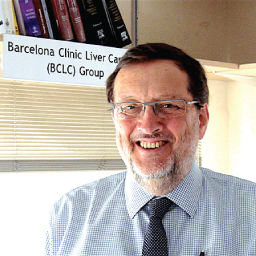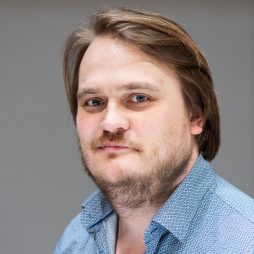How are you enjoying Digital #LiverCancerSummit?
Don’t miss out on the buzz. Be part of it on Twitter. We’d love to hear from you – before, during, and after the summit.
Don’t forget to insert #livercancersummit in your tweet. We’ll feature your words in our Guest Book here below.
Wishing you a stimulating summit and looking forward to your #livercancersummit tweets.
Meet the organisers:

Prof. Chiara Braconi
Chiara Braconi is a Lord Kelvin Adam Smith Associate Professor at the University of Glasgow and holds a honorary contract as Consultant Medical Oncologist at the Beatson West of Scotland Cancer Centre.
Her research is focussed on hepato-pancreatico-biliary tumours, and aims at delineating novel treatment strategies for these cancers by integrating genomics, epigenomics, and patient-derived models for the identification of novel therapeutic targets and biomarkers.
Dr Braconi received her MD degree from the University of Ancona in Italy, and completed her fellowship in Medical Oncology in 2006. She then enrolled in a joint PhD program between the University of Ancona and The Ohio State University, which was followed by post-doctoral training at the Ohio State University, USA. She worked at the University of Glasgow between 2012 and 2014 supported by a Scottish Senior Clinical Research Fellowship, where she continued her work on hepatobiliary cancers.
She joined the Institute of Cancer Sciences in May 2019, where she has developed a research platform on biliary cancers, connecting laboratory research, and early clinical development in order to accelerate the field of predictive biomarkers and therapeutics.
She is currently working within national and international consortia (European Network for the Study of Cholangiocarcinoma, COST-action 18122, and Cholangiocarcinoma-UK) to support a collaborative international research programme in biliary cancers.

Prof. Jordi Bruix
Jordi Bruix is Professor of Medicine at the University of Barcelona and Director of the Barcelona Clinic Liver Cancer Group.
He has been principal investigator of studies and clinical trials that have changed practice in the field of HCC, this including development of diagnostic criteria and prognostic models, and establishing chemoembolization, sorafenib and regorafenib as conventional therapy. He has developed and sequentially updated the BCLC staging and treatment strategy that has been endorsed by several international scientific associations to guide management of patients with HCC. He has authored more than 300 peer reviewed manuscripts and Evidence-based Practice Guidelines for Hepatocellular Carcinoma at EASL, AASLD and WGO.
Prof. Bruix is a member of the European Association for the Study of the Liver (EASL) and the American Association for the Study of Liver Diseases (AASLD). He founded the International Liver Cancer Association (ILCA) and was nominated President from 2006 to 2009. His task has primed major recognitions such as the Hans Popper Award, the Golden Medal Award from the Canadian Association for the Study of the Liver, the EASL Recognition Award and the AASLD Distinguished Achievement Award.
He has been Associate Editor of Journal of Hepatology, Liver Transplantation, and Hepatology, and is currently Co-Editor in Chief of Seminars in Liver Disease.

Dr Jean-Charles Nault
Jean-Charles Nault received his MD and PhD degrees from Paris Descartes University. He is currently working in the liver unit of the Avicenne Hospital in Bobigny, France, placing a high priority on early detection of primary liver tumors and on therapeutic innovation.
He is also an active member of the laboratory of “functional genomics of solid tumours” at the INSERM UMR 1138 un the Cordeliers Research Center.
His research is dedicated to translational research, in particular the identification of new driver genes in hepatocellular adenoma and hepatocellular carcinoma, of new therapeutic targets, and of the molecular determinants of hepatocellular carcinoma’s prognosis.

